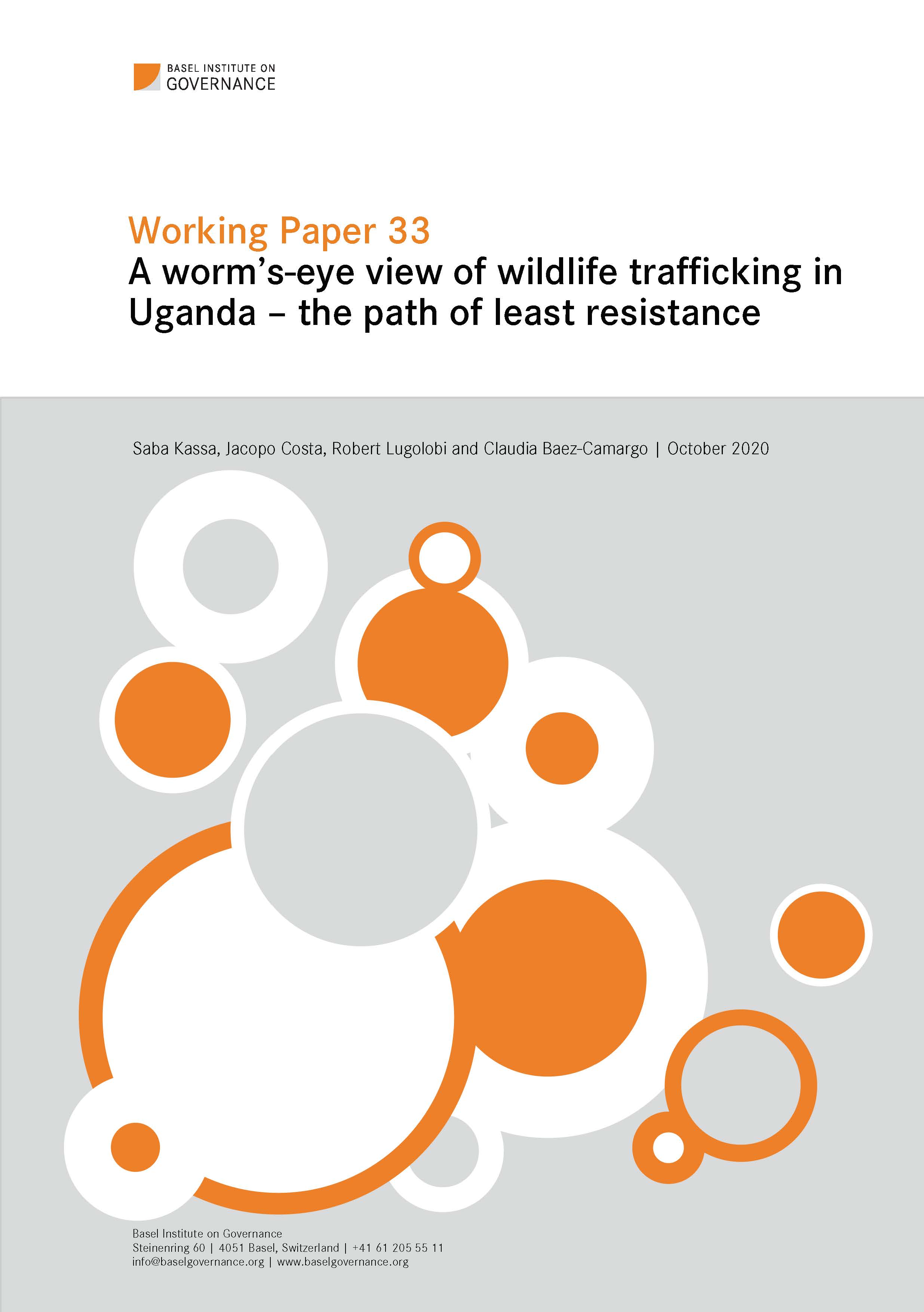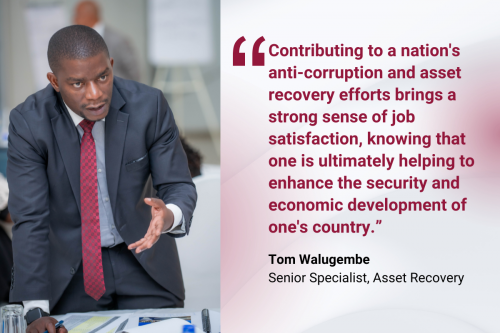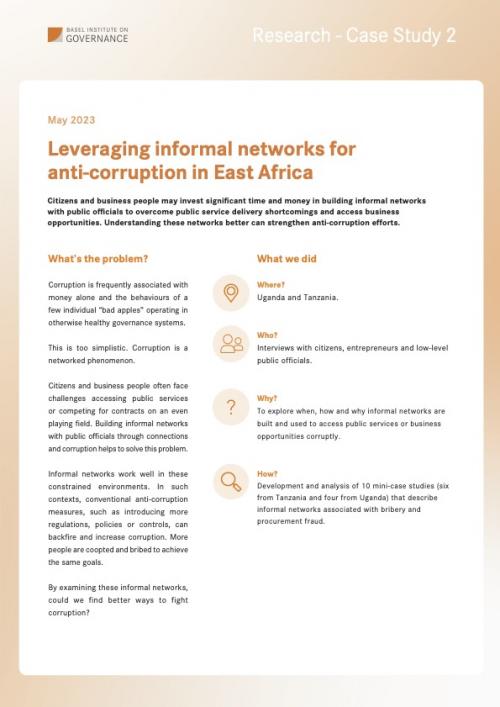Working Paper 33: A worm’s-eye view of wildlife trafficking in Uganda – the path of least resistance
This Working Paper is a key output of the Basel Institute's Green Corruption programme, a multi-disciplinary engagement that targets environmental degradation through tested anti-corruption, asset recovery and governance methods. The research is funded by PMI Impact as part of a wider project on intelligence-led on financial crime in illegal wildlife trade (IWT).
The fight against wildlife trafficking is a global one. Wildlife trafficking constitutes the fourth-largest form of illicit trade flow in the world. Its prevalence is often explained in economic terms: it is a “low-risk, high-profit” trade. Global efforts are therefore directed at increasing the “costs” of wildlife trafficking and reducing the rewards.
However, rational cost-benefit calculations by individuals seeking personal economic gain do not fully explain why wildlife trafficking is so prevalent. Nor, therefore, will it be solved by passing new laws and strengthening law enforcement alone. Scholars as well as development and law enforcement practitioners increasingly recognise the importance of considering the way in which the local context and socio-cultural structures (so-called behavioural drivers) influence the behaviours of individuals and their propensity to engage in wildlife trafficking.
This social context is not only an anchor for decision-making but also influences the strategies through which wildlife trafficking is organised. Individuals are part of informal networks. Social connections in and between the networks facilitate the transportation of wildlife products from poachers to buyers across vast geographical spaces. Public officials can be part of such networks too. In such cases those individuals, rather than enforcing the law, use their position to cover up the trafficking of wildlife products out of parks, cities and ports in East Africa.
This approach of emphasising context-sensitive behavioural drivers anchors the research activities that the Public Governance division is leading in Uganda as part of the wider programme of work of the Institute. Uganda is a hub for wildlife trafficking in East Africa. High volumes of wild animal products are transported into, through and out of Uganda using various methods and strategies. Taking a worm’s-eye perspective, the research aims to provide further understanding on:
- Why wildlife trafficking happens, by focusing on the economic and behavioural drivers of wildlife trafficking and the role of the broader governance environment in generating increased corruption risks in public offices mandated to prevent and combat wildlife trafficking.
- How wildlife trafficking happens, by focusing on the role and strategies employed by informal networks of poachers, middlemen and buyers to transport high volumes of wildlife products into, through and out of Uganda.
The findings are based on 47 interviews with Ugandan-based and international anti-IWT experts (IGOs, NGOs, academics and public officials) and 8 focus group discussions with wildlife conservation and anti-corruption experts in Kampala, members of reformed poachers’ networks in Western Uganda, and individuals living around a wildlife habitat in Northern Uganda. Together, these provide context-specific insights on the drivers and facilitators of wildlife trafficking in Uganda. The present report synthesises their observations and aims to contribute to the development of evidence-informed approaches to curbing the trade.
About this Working Paper
This paper is part of the Basel Institute on Governance Working Paper Series, ISSN: 2624-9650.
This report was funded by PMI IMPACT, a grant award initiative of Philip Morris International (PMI). In the performance of their research, the authors maintained full independence from PMI. The views and opinions expressed in this document are those of the authors and do not necessarily reflect the views of PMI. Neither PMI, nor any of its affiliates, nor any person acting on their behalf may be held responsible for any use which may be made of the information contained herein.
Links and other languages



